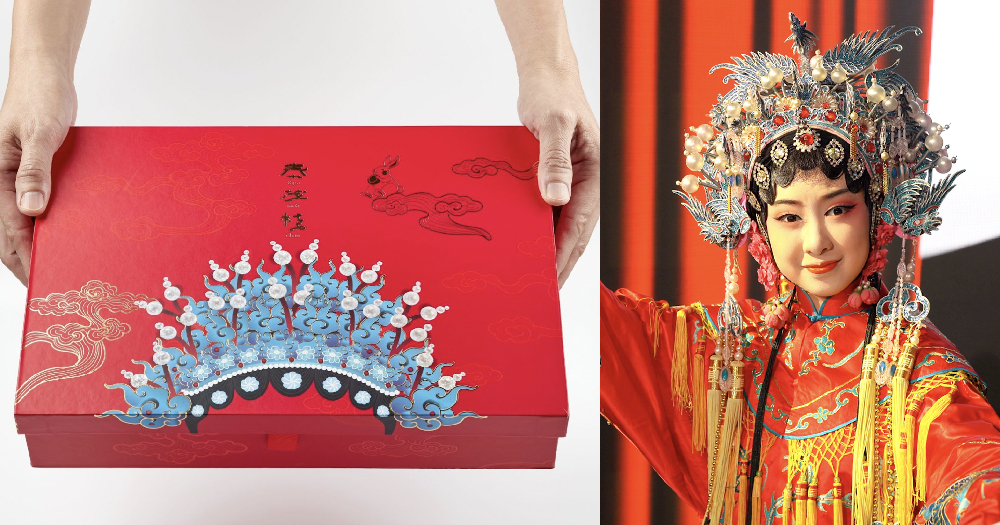18-year-old Tan Wei Tian may seem like an ordinary student when you meet her for the first time.
But the teen is anything but ordinary.
She is the youngest Teochew opera artiste in Singapore to play the lead role in a full-length Chinese opera show (certified by the Singapore Book of Records in 2018 at the age of 15), and has been one ever since she started learning the art form under her grandmother's influence.
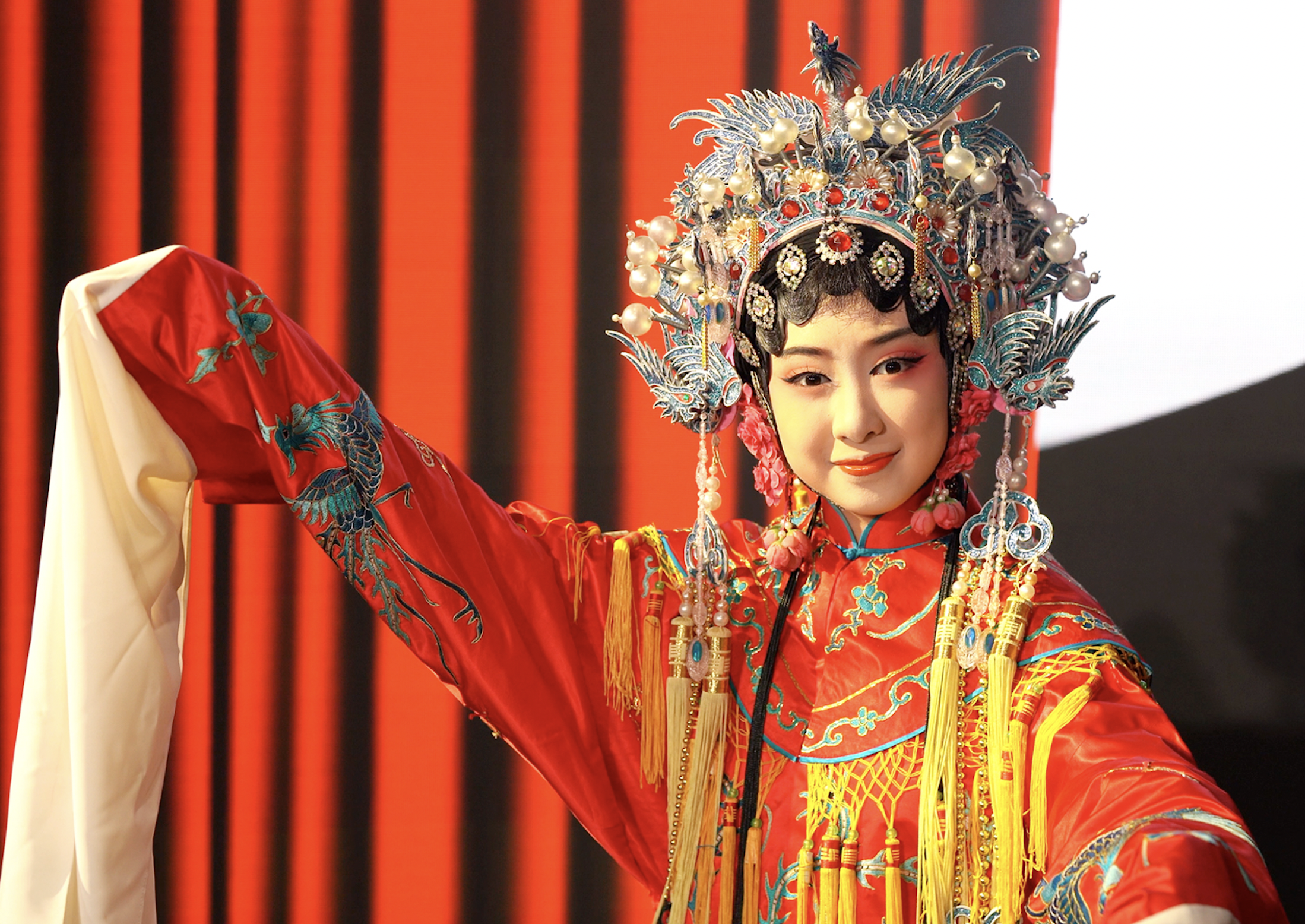 Tan in full ensemble during a performance. (Image courtesy of Tan Wei Tian)
Tan in full ensemble during a performance. (Image courtesy of Tan Wei Tian)
It was her grandmother who brought her to her first opera show when she was barely two years old.
“I don’t exactly remember how I got started on Teochew opera as I was so young at the time, but it was most likely a gradual thing -- I fell in love with it over time as I got in touch with it more and more,” she said.
Some Singaporean children might have felt “coerced” by their parents to go for an after-school activity that they don’t particularly like, all for that extra stamp of accomplishment on their future school applications.
However, Tan never once felt like she was forced to learn Teochew opera.
“Opera is my hobby, and it’s what I love, so I don’t view it as something stressful that will affect my studies,” she said.
“In fact, it helps to relieve my stress, and I feel very happy when I’m going down for practice!”
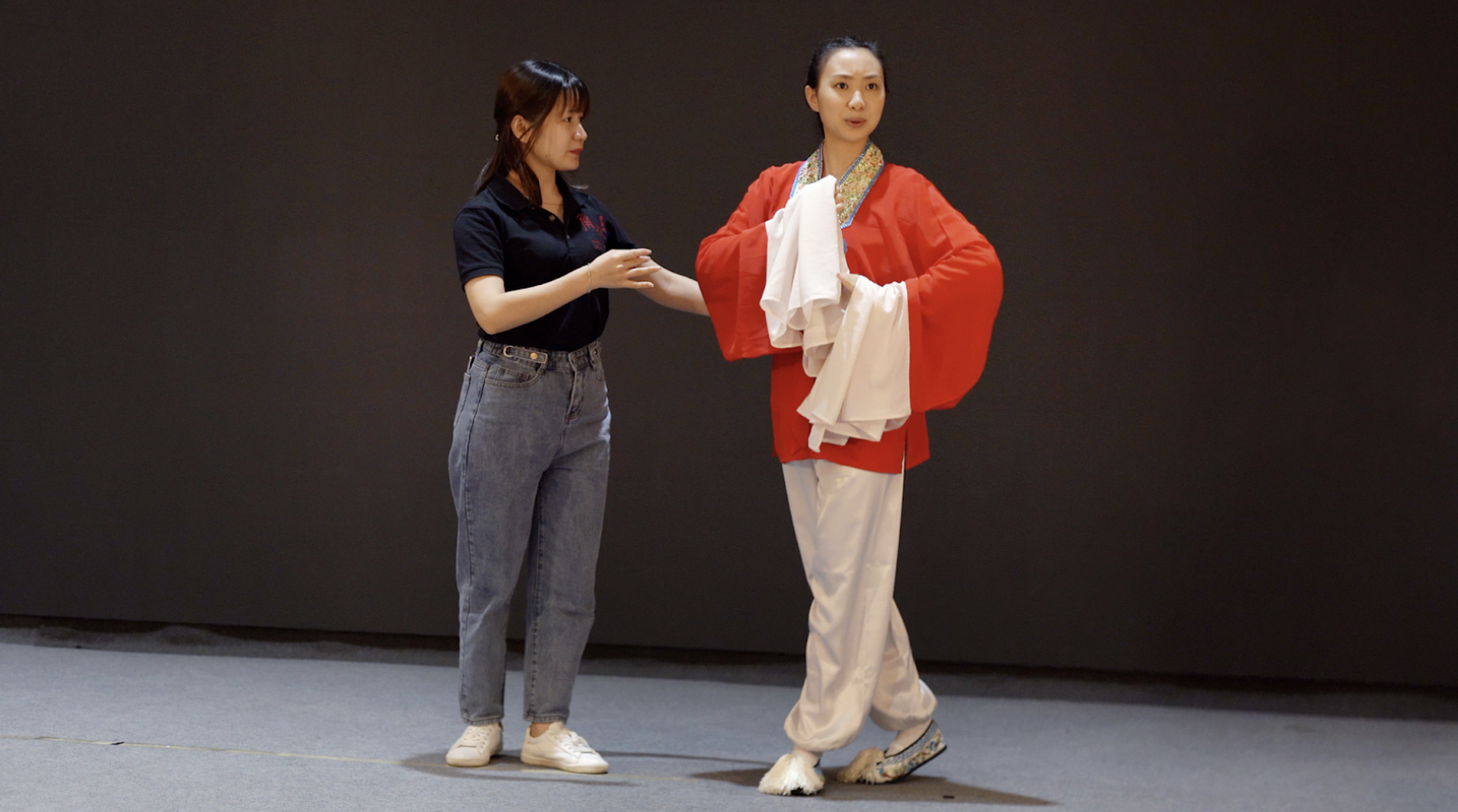 Tan tells us that her teachers are only in their mid-twenties. (Image courtesy of Tan Wei Tian)
Tan tells us that her teachers are only in their mid-twenties. (Image courtesy of Tan Wei Tian)
Tan, who is currently a full-time Aviation Management student at Republic Polytechnic, juggles a few extra-curricular activities on the sidelines as well.
Speaking to Mothership over a virtual interview, Tan easily lists off the activities that she occupies herself with.
Besides completing the Grade 8 level for piano last year -- one of the highest grades there are for the instrument -- she goes for weekly final-year Chinese dance (Grade 12) lessons at NAFA, and canoes frequently with her school team as well.
If that sounds excessive, even to the average harried Singaporean, she still manages to find the time to do some crocheting and knitting as well -- activities which the avid arts and craft hobbyist love to do.
Lifelong passion for Teochew opera
But ultimately, her passion still lies in traditional Teochew opera, so much so that she sees herself still performing on stage even several decades later when she grows old.
“As long as my body still holds up, I think I’ll still be performing,” she said.
“Teochew opera is not just part of my identity, it’s been with me for so long, for 15 years, so it’s already a part of me,” she added.
“I don’t think I’ll be able to part with it, it’s going to stick with me throughout my life.”
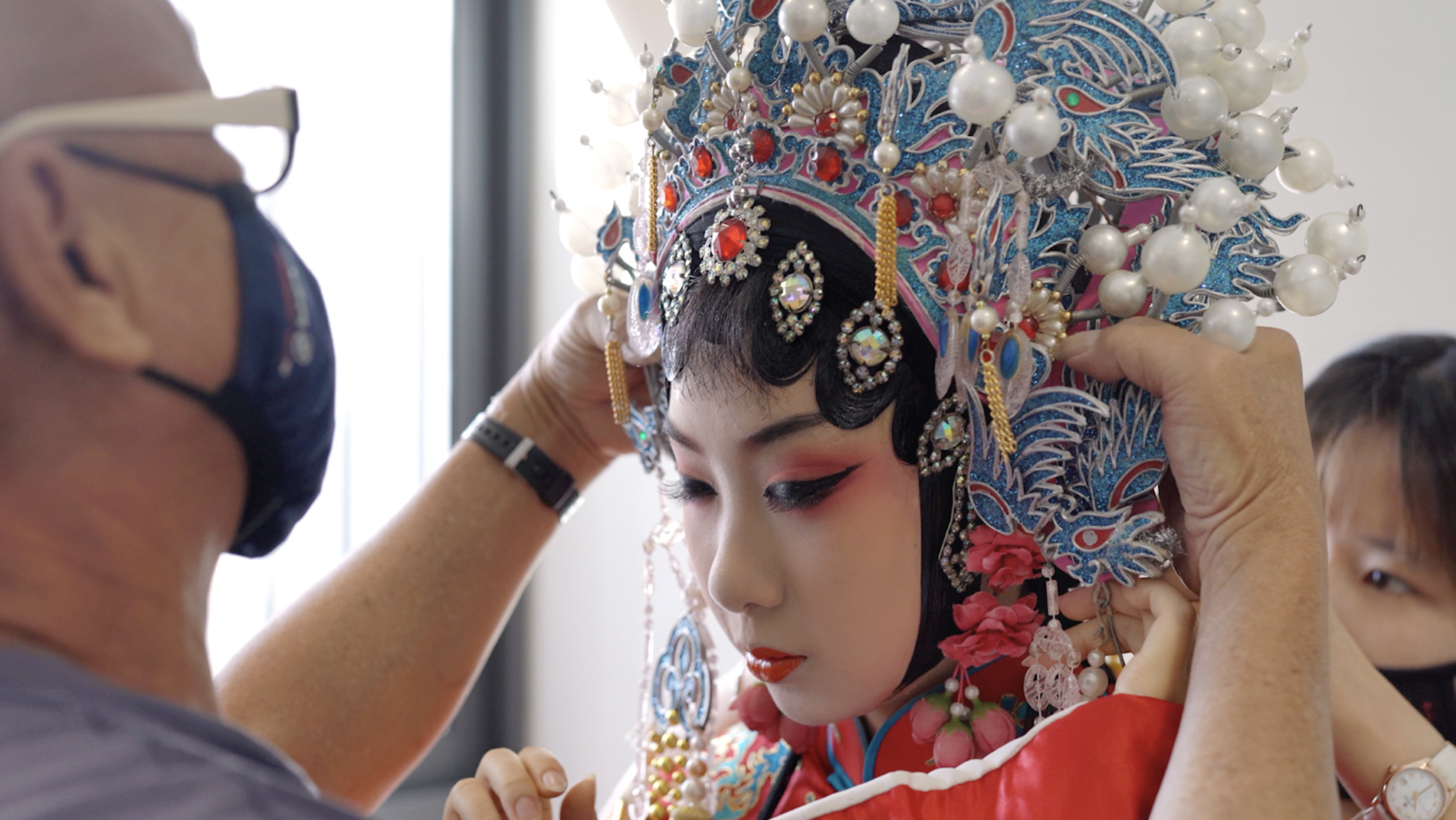 Tan getting geared up before a big performance. (Image courtesy of Tan Wei Tian)
Tan getting geared up before a big performance. (Image courtesy of Tan Wei Tian)
As for why she finds Teochew opera so captivating, Tan said she is drawn to the stories told on stage as they not only allow her to express herself and display her artistic talents, they teach her valuable life lessons too.
For instance, the Chinese values of “礼义廉耻” (li, yi, lian, chi), which mean "propriety, righteousness, integrity, humility" respectively.
She further said Teochew opera appeals to her as it is rooted in traditional Chinese values, such as filial piety.
“I strongly believe that it’s good to follow Chinese values as a Chinese, and my parents and family are still very much rooted to traditional culture and values,” she said, adding that it’s a way for her to feel grounded in her identity as a Teochew Chinese as well.
Fighting against stereotypes that opera is “old and boring”
However, not everyone her age is into this ancient performing art or even knows what it’s about, perhaps understandably so, given the overarching preconceptions towards it.
“Younger people have some stereotypical thoughts towards not just Teochew opera, but opera in general, like it’s old and boring,” she said.
While she has tried to bring her friends to try out Teochew opera, they had declined politely, preferring to attend her shows instead to show their support.
“I’ve known friends through opera, but haven’t gotten my friends to get involved in opera,” she said with a laugh.
But Tan would like to change this perception, adding that Teochew opera artistes in Singapore have been constantly trying to modernise the art form to appeal to a wider and younger audience.
Besides adding Chinese and English subtitles, they do this by tweaking performers’ makeup and changing their hairstyles to fit modern beauty standards, so as to look more appealing to the average person who might not understand the art form that well.
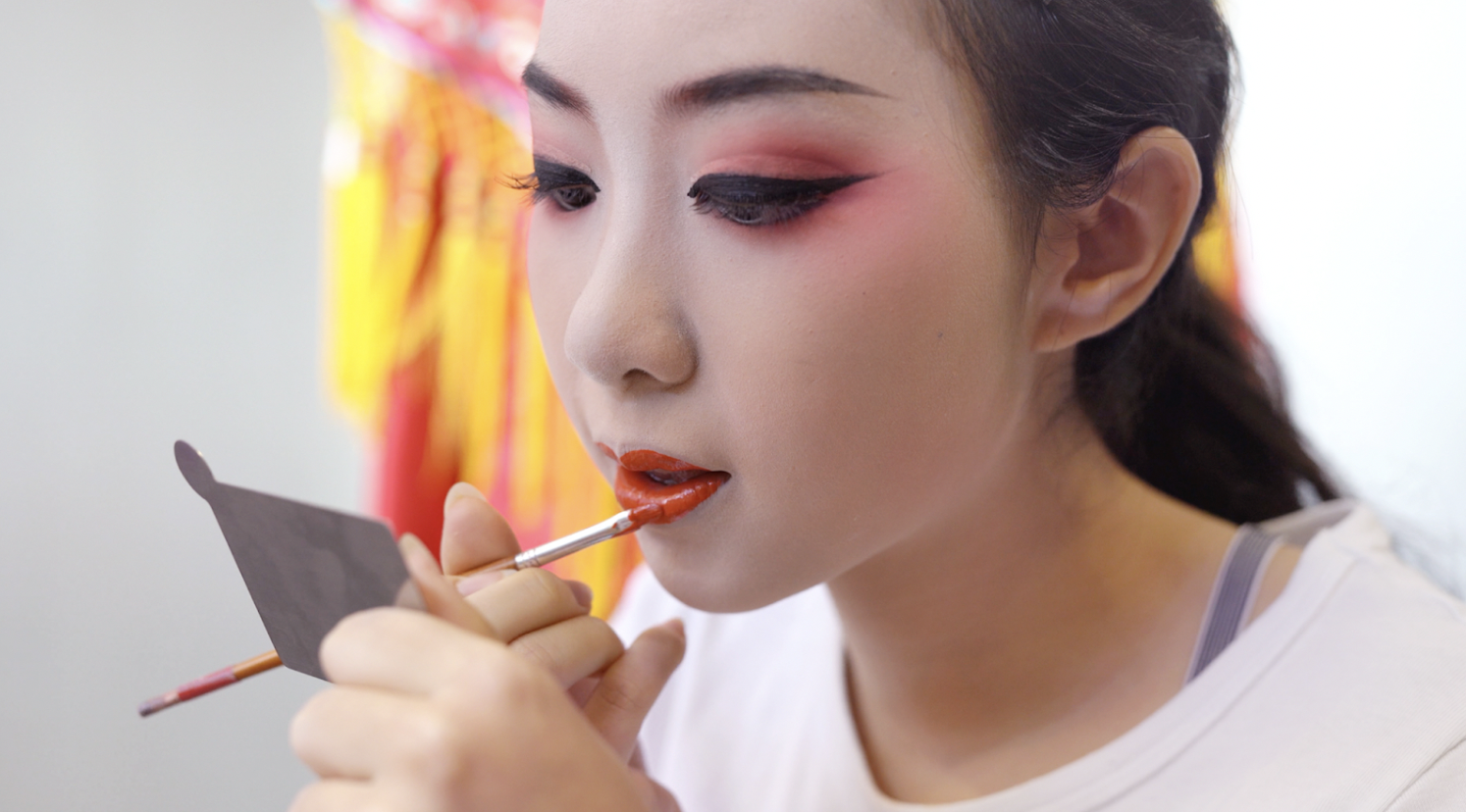 Tan puts on her makeup herself most of the time, and says that Teochew opera makeup is done differently now as compared to the past. (Image courtesy of Tan Wei Tian)
Tan puts on her makeup herself most of the time, and says that Teochew opera makeup is done differently now as compared to the past. (Image courtesy of Tan Wei Tian)
Happy to see her audience happy
Despite the lack of interest in the wider population in Singapore towards Teochew opera, however, Tan is glad that there is still an audience that appreciates the art form.
In fact, the greatest satisfaction she gets on stage is seeing her audience derive joy from her performance.
“I love that I’m able to make the audience happy, especially the elderly and those who love Teochew opera,” she enthused.
“When we used to have live performances with a large crowd watching us, clapping and encouraging us, it makes me very heartened that they enjoy my performances,” she said.
Tan added, “To let more people know about Teochew opera is a big push factor for me to continue pursuing this art and go even further.”
And she gets the chance to actively promote the performance to others as well.
Tan, who was appointed the Singapore Tourism Board’s “Passion Made Possible” ambassador in 2017, has travelled overseas multiple times to showcase and promote the art form, which is something that she views as extremely important.
Describing how her experience has been like, she said, “I got to go to Penang for an arts festival, and explain to audiences of different ethnic groups what Teochew opera is.”
She also recounted instances where parents walked up to her to tell her that their kids got started on Teochew opera after they saw her performances.
“It’s very heartwarming for me to know that there are actually more children now who are interested in learning Teochew opera,” she said, adding that there are no age limitations.
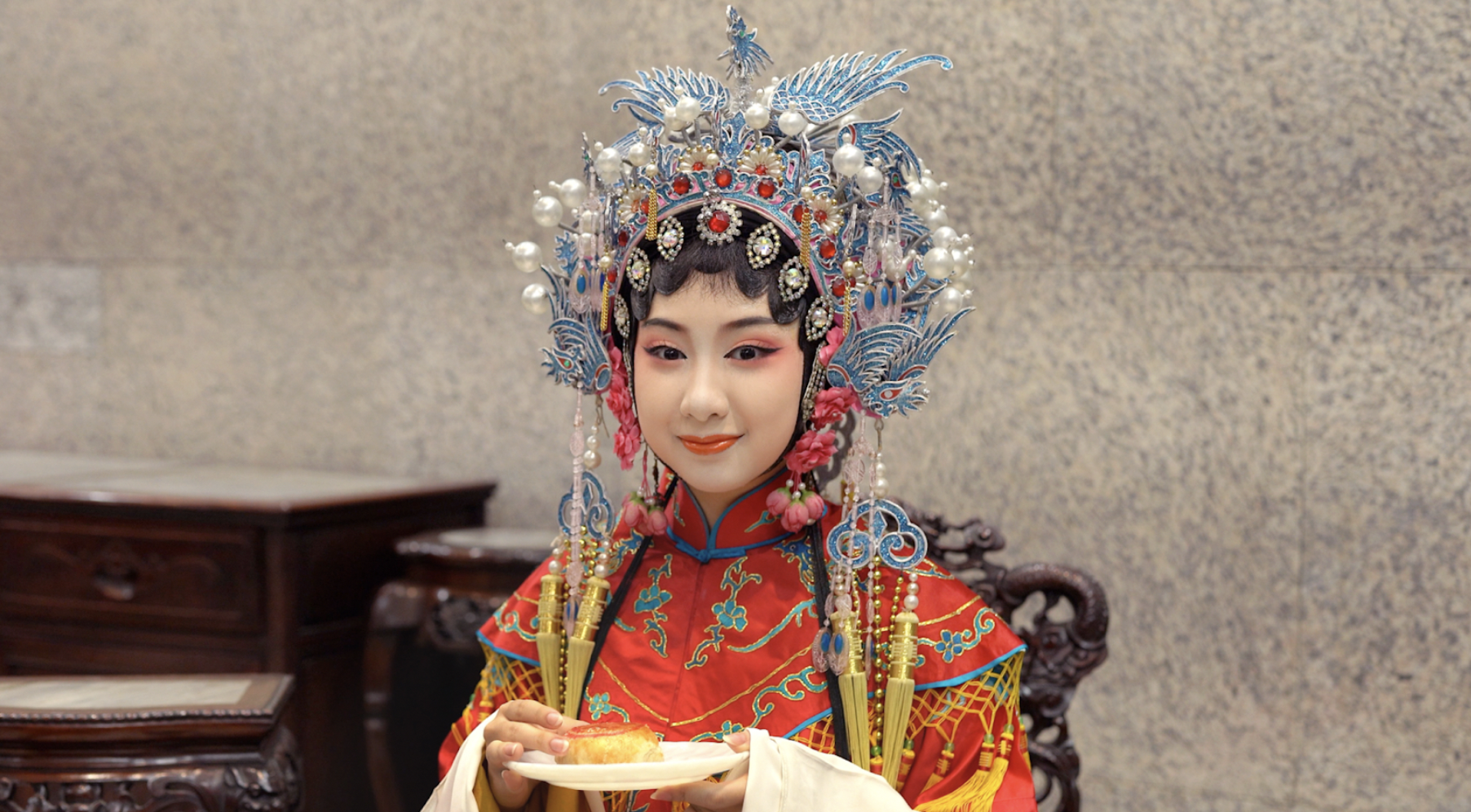 Tan enjoying a piece of Teochew mooncake while backstage in the waiting room. (Image courtesy of Tan Wei Tian)
Tan enjoying a piece of Teochew mooncake while backstage in the waiting room. (Image courtesy of Tan Wei Tian)
Children as young as four can start learning as well, just like how her opera journey began at three.
For her efforts to promote Teochew opera, Tan was named by TEDxSingapore as one of the 14 young female Asians who possesses a unique passion for leading the next generation in helping to preserve “Culture and Heritage”.
Carrying on Teochew heritage through its pastries
But it’s not just Teochew opera that is seeing growing efforts towards its preservation in Singapore.
Traditional Teochew baked goods store Thye Moh Chan (TMC), which has been around since 1943, tells Mothership that they hope to keep Teochew food heritage and culture alive too, by looking out for young bakers who are willing to learn the craft.
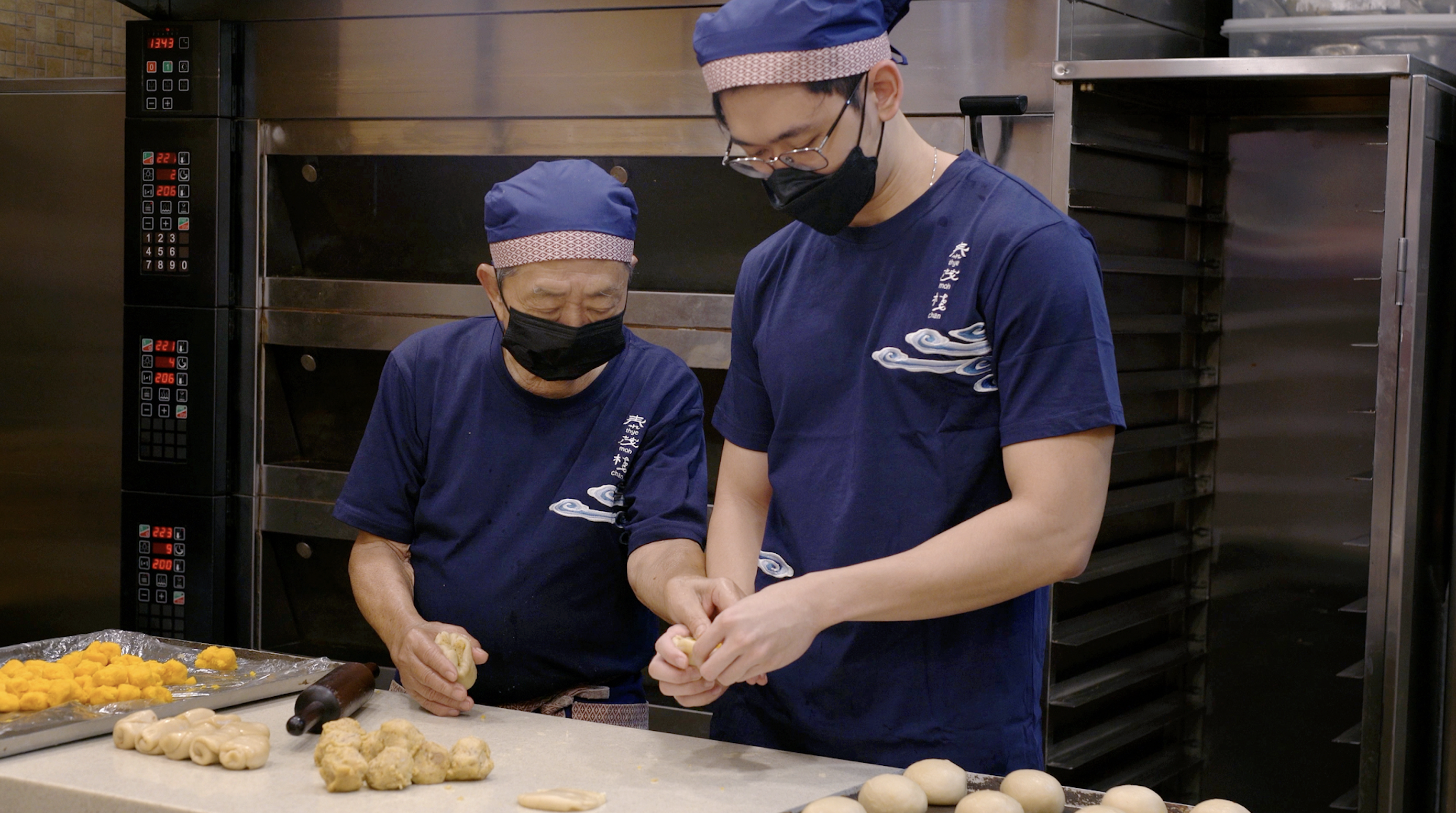 While it hasn’t been easy to attract new blood to the industry, some younger folks who are considered “second generation” have willingly helped out in their family businesses or started their own F&B businesses. Thye Moh Chan's veteran chefs are passing down their craft and knowledge to a new generation of bakers. (Image courtesy of Thye Moh Chan)
While it hasn’t been easy to attract new blood to the industry, some younger folks who are considered “second generation” have willingly helped out in their family businesses or started their own F&B businesses. Thye Moh Chan's veteran chefs are passing down their craft and knowledge to a new generation of bakers. (Image courtesy of Thye Moh Chan)
It’s not an easy feat, however, in this day and age, to find younger folks who want to enter this industry and pick up the art of Teochew pastry making.
“Traditional Teochew pastry making and baking techniques are time-consuming and labour-intensive to learn,” Matthew Quek, Brand Development Manager of TMC, said.
“Some younger folks today who prefer fast and efficient results are generally not keen to go into this field,” he said, adding that it takes “at least one year for an apprentice to master the craft of making handmade pastries”.
“Interestingly, the difficulty involved doesn’t come from picking up the techniques, as with enough practice, younger chefs can easily reach a decent level that allows them to carry out basic tasks like kneading the dough,” he explained.
“It might sound cliché, but the experience of our older chefs shines through their ability to identify and make use of ingredients to consistently produce high quality pastries that our brand promises,” he added.
“Each step of pastry making requires precise handling and that takes experience and time to master, which makes it quite challenging for our younger chefs.”
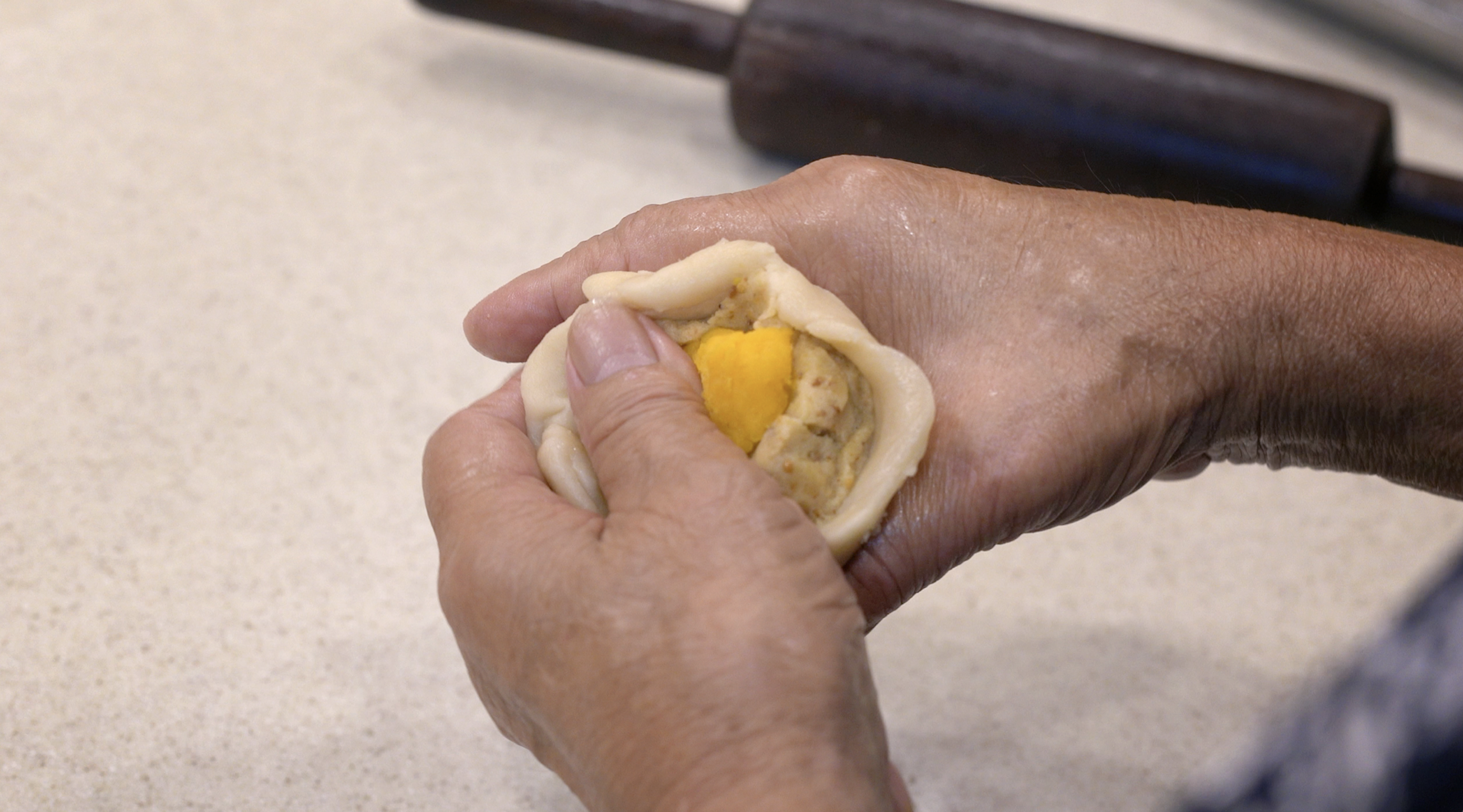 Each Thye Moh Chan mooncake is delicately crafted by hand. (Image courtesy of Thye Moh Chan)
Each Thye Moh Chan mooncake is delicately crafted by hand. (Image courtesy of Thye Moh Chan)
For the uninitiated, Teochew mooncakes are different from other mooncakes due to its filling.
Quek explained that the tau sar filling used in Teochew mooncakes are “made from scratch and cooked to perfection following hours of soaking, steaming, grinding, filtering and precise temperature-controlled cooking”.
He added that handmade goods require more manpower, a longer processing time, and cost more to complete as well, which makes machinery an attractive option for many, although TMC still insists on making its pastries by hand.
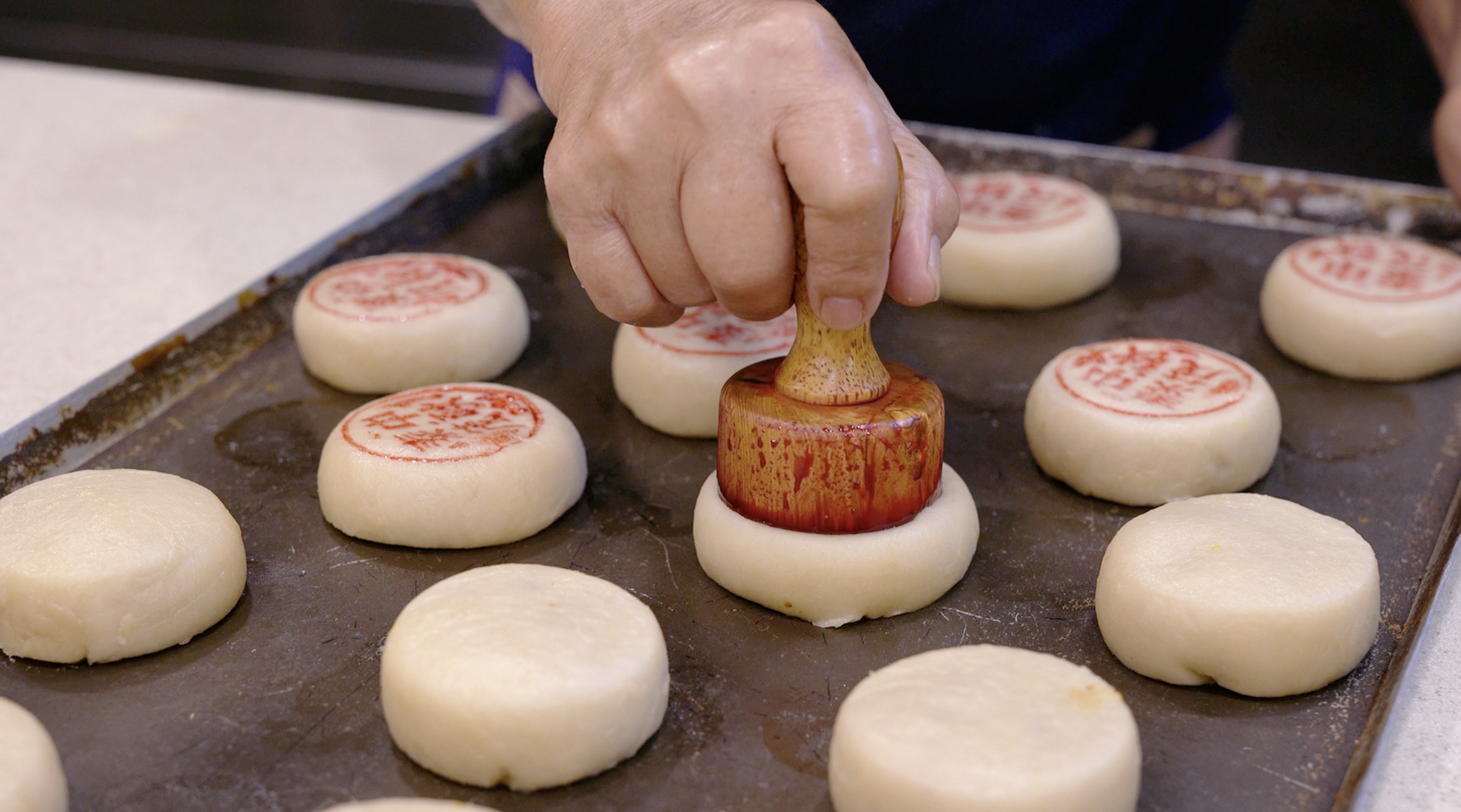 The Thye Moh Chan "stamp of quality" since 78 years ago. (Image courtesy of Thye Moh Chan)
The Thye Moh Chan "stamp of quality" since 78 years ago. (Image courtesy of Thye Moh Chan)
To entice potential chefs from the younger generation, they have tapped on the power of social media to promote their products, and have also come up with new and innovative mooncake flavours to appeal to a younger customer base.
Different from other types of traditional mooncakes, Teochew mooncakes feature a light and flakey pastry skin for it’s made from pastry dough, as opposed to a denser one that’s made from flour, sugar syrup, and peanut or sesame oil. Their fillings are mostly made with tau sar as well, which can taste either sweet or savoury.
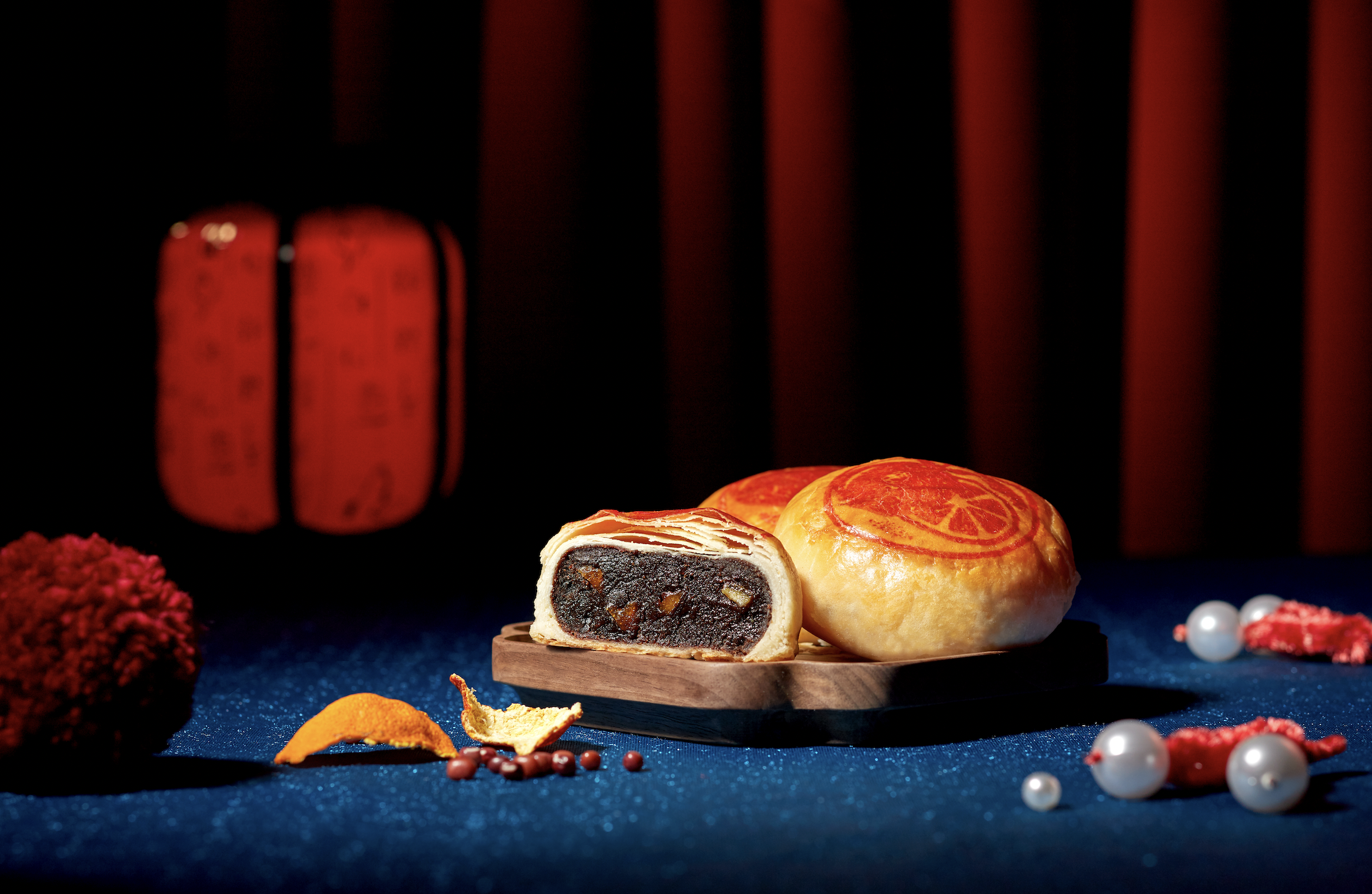 Mandarin Peel Red Bean mooncake. (Image courtesy of Thye Moh Chan)
Mandarin Peel Red Bean mooncake. (Image courtesy of Thye Moh Chan)
Some of the flavours they introduced include their Yam with Salted Egg Yolk, a seasonal flavour that’s only available during Mid-Autumn Festival, which they said is one of their best-selling products.
Many Teochew dishes and desserts are yam-based, such as orh nee, and the tuber vegetable is a popular ingredient among the Teochews as well due to the auspicious ring to its name -- its name in Chinese “芋头” (yutou) sounds like “好意头” (haoyitou), which means “good omens” in English.They have also launched a limited edition Lychee Rose White Lotus last year, which they described as a crowd favourite among younger customers.
These are in addition to their new line of Teochew-inspired mooncakes launched this year, which incorporate ingredients used traditionally in Teochew dishes, such as olive vegetables -- commonly seen as a Teochew porridge side dish -- for their Olive Vegetable Tau Sar with Salted Egg Yolk.A rendition of their trademark Sweet Tau Sar with Melon seeds, the olive vegetable adds a savoury twist to the pastry, which tastes slightly sweet as well with its mung bean and crunchy melon seeds filling.“It’s definitely my personal favourite as I grew up eating olive vegetables with my porridge,” Quek said, adding that the mooncake’s sweet and savoury flavour profile makes it quite unique and addictive.
Adding to their range of fresh creations is their Momoyama mooncakes, which is inspired by Japanese “wagashi” (sweets), and features pastry skin that’s not only delicate and colourful, but is also healthier as less sugar is used -- ideal for those who are more health-conscious.
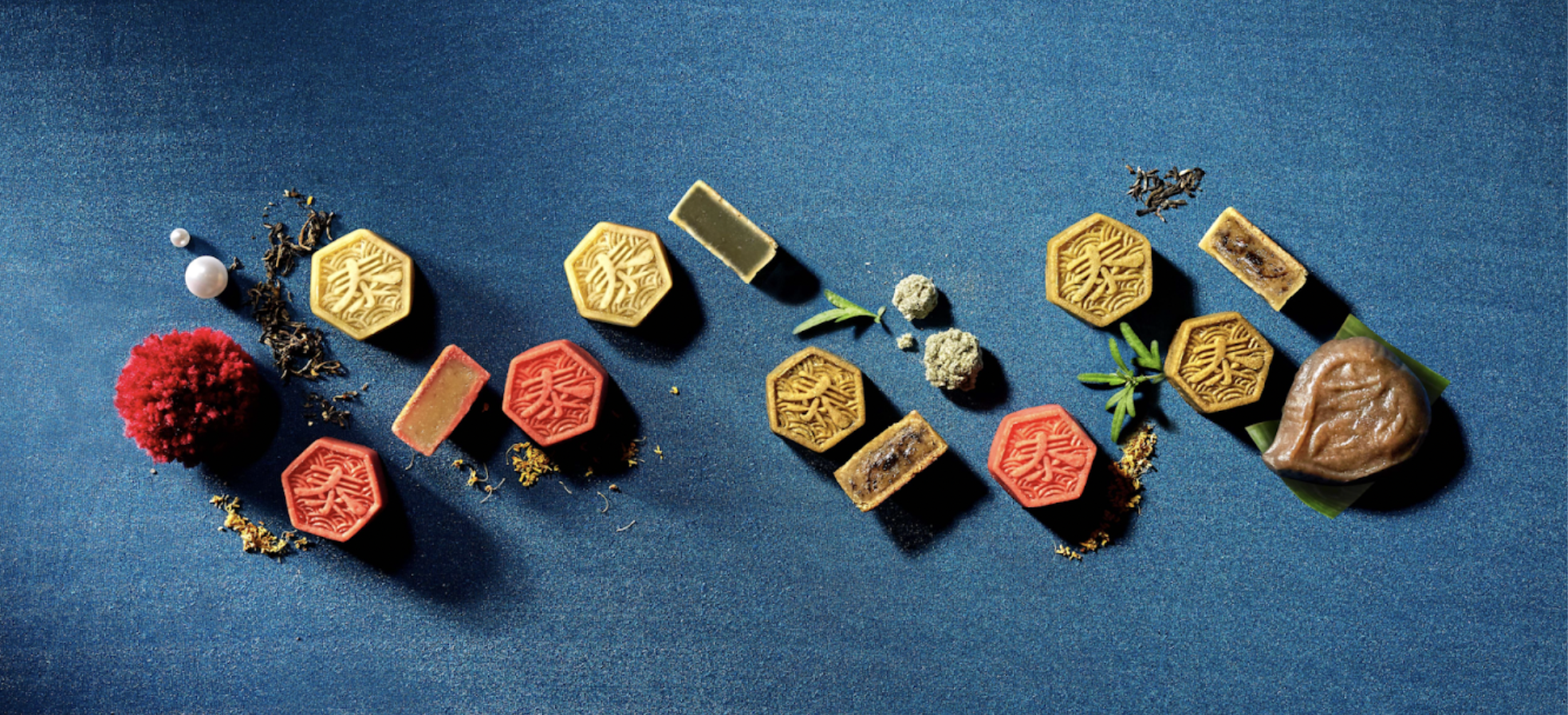 Clockwise from bottom left: Osmanthus Momoyama, Dan Feng Tea Momoyama, Cudweed Momoyama. (Image courtesy of Thye Moh Chan)
Clockwise from bottom left: Osmanthus Momoyama, Dan Feng Tea Momoyama, Cudweed Momoyama. (Image courtesy of Thye Moh Chan)
These flavours were finalised after more than six months of research and development, and factors such as their shelf life, as well as the density of the filling, were taken into account, TMC said.
It’s all worth it, however, if more people are able to enjoy and appreciate traditional Teochew food through their pastries, Quek said.
This year, TMC’s mooncake box design pays homage to Teochew opera as well, for it’s a respected artform with a legacy akin to their longstanding craftsmanship; both require years of practice to master and perfect.
An exquisite Teochew opera headpiece, complete with shimmery sparkles, takes centre stage on the covers of the gift boxes, which are paired with matching paper bags in bright red, blue and pink colours.
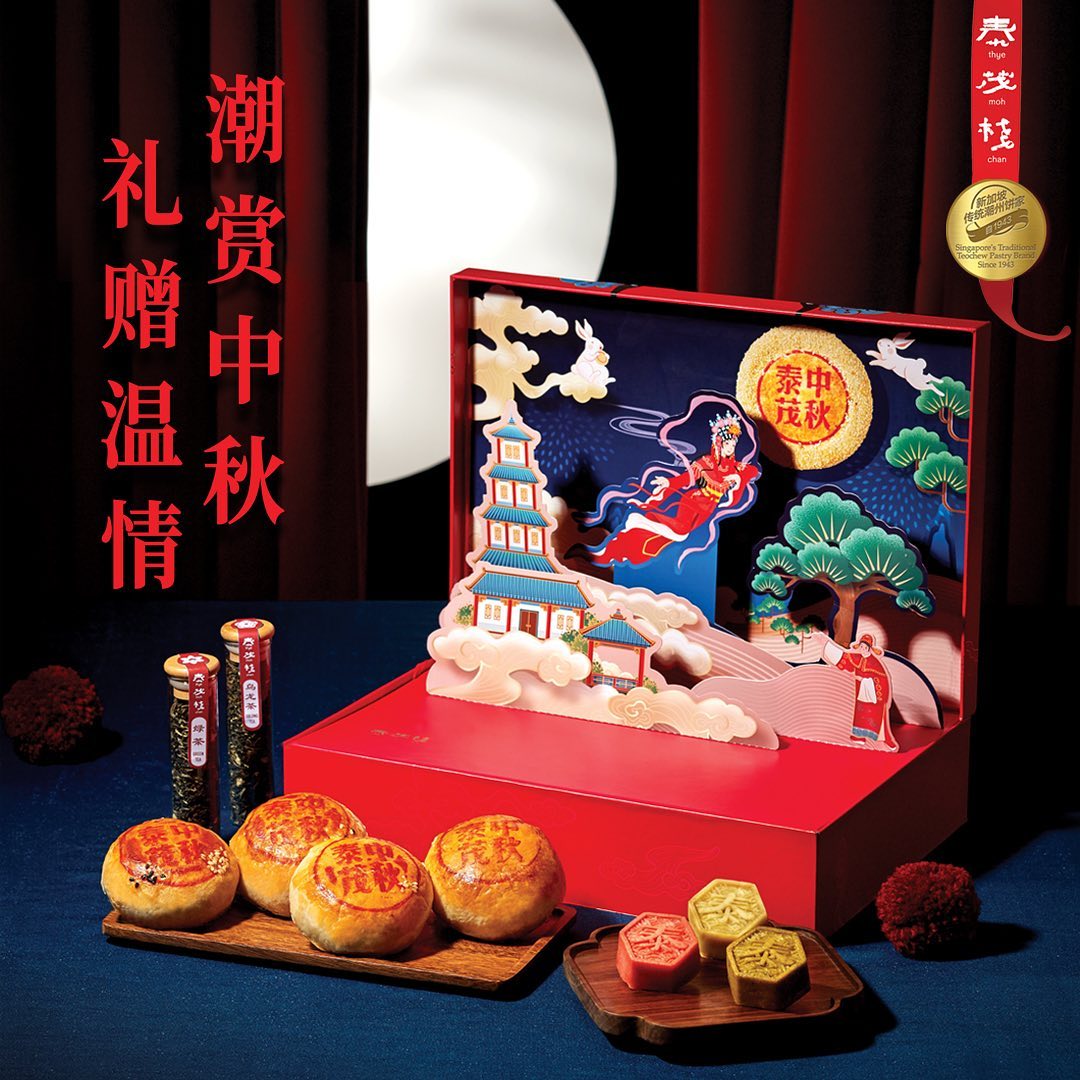 Each gift box features a backdrop set against an image of a “full moon” represented by a TMC traditional Teochew mooncake, as well as elements such as gold-embossed cloud motifs, a moon rabbit and Chang E donning a traditional opera outfit. The larger-sized boxes present this scene as a 3D cut-out. (Image courtesy of Thye Moh Chan)
Each gift box features a backdrop set against an image of a “full moon” represented by a TMC traditional Teochew mooncake, as well as elements such as gold-embossed cloud motifs, a moon rabbit and Chang E donning a traditional opera outfit. The larger-sized boxes present this scene as a 3D cut-out. (Image courtesy of Thye Moh Chan)
TMC mooncakes are available at all TMC outlets, as well as selected BreadTalk and Toast Box outlets.
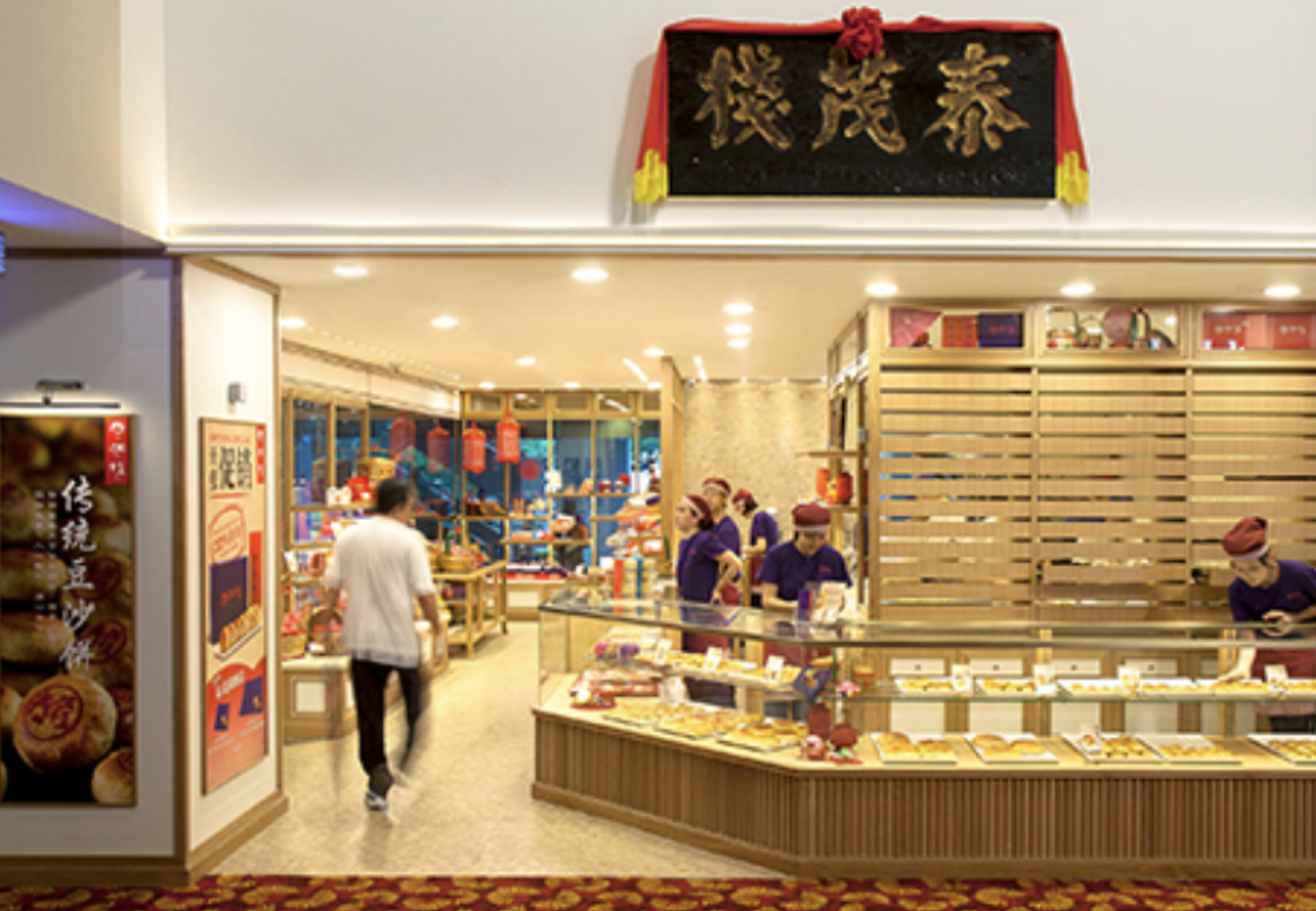 A TMC outlet at Chinatown Point.
A TMC outlet at Chinatown Point.
This sponsored piece by Thye Moh Chan helped the writer get a glimpse of Teochew heritage today.
If you like what you read, follow us on Facebook, Instagram, Twitter and Telegram to get the latest updates.
